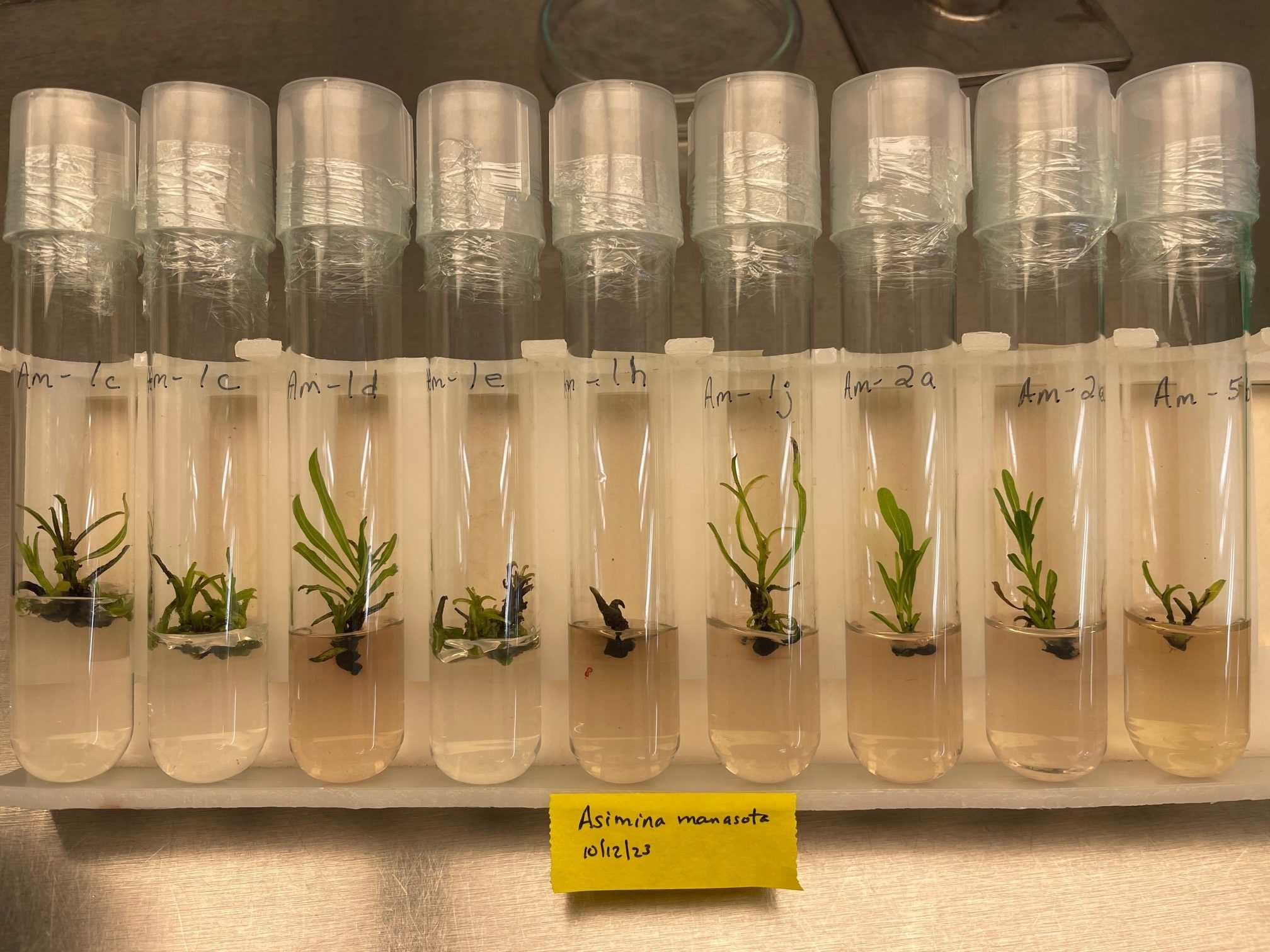New Modules Launched for the Applied Plant Conservation Course
The Center for Plant Conservation (CPC) is thrilled to announce the launch of Modules VI and VII of its Applied Plant Conservation Course—a free, online professional development training designed to equip both current and prospective members of the botanical workforce with the tools and knowledge needed for effective rare plant stewardship and conservation. These new modules delve into vital aspects of plant conservation, focusing on best practices for seed collections and seed banking (Module VI) and the conservation of exceptional species (Module VII).
Module VI offers an in-depth look at planning conservation seed collections and best practices for making seed collections in the field—from obtaining permits and the logistics of getting to plant populations, to assessing seed ripeness, collecting without harming the wild population and making herbarium vouchers. It also delves into best practices for conservation seed banking, including methods for preparing orthodox seeds for long-term storage, evaluating seed quality, drying seeds to appropriate relative humidity and temperature, germination trials, equipment and materials needed, and more.
A highlight of Module VI are lessons focused on the importance and purpose of herbarium specimens, which take participants on journeys into the field to demonstrate how species are collected and vouchered. The Making an Herbarium Voucher lesson (preview at left) created by scientists from California Botanical Garden, guides participants through the process of creating high-quality herbarium specimens, including how to record essential data for proper filing and inclusion in online databases, how to protect and process specimens in the field, the tools and materials required for field pressing, and the critical steps for drying and long-term storage of specimens in an herbarium cabinet.
Additionally, a special lesson series (preview at right) follows Wendy Hodgson of Desert Botanical Garden into the desert Southwest and into the herbarium to learn how to collect and process cacti, agaves, and yuccas to create beautiful and informative herbarium specimens, as well as how proper documentation impacts knowledge and conservation efforts of species in these families—many of which are rare, threatened, or endangered. Participants will also learn about the tools of the trade needed to safely collect these large and often prickly specimens (no suit of armor required!).
While Module VI explores orthodox seed banking methods, Module VII presents the fundamentals of exceptional species conservation—from defining and determining exceptionality to the conservation strategies and methods used to preserve these species that cannot be stored with traditional seed banking methods. Experts from the Cincinnati Zoo & Botanical Garden’s Center for Conservation and Research of Endangered Wildlife (CREW) share their extensive experience in the preservation of exceptional species, offering detailed guidance on the best practices for establishing tissue cultures—including from seeds, spores, or vegetative tissue, with an emphasis on maintaining genetic diversity and viability—as well as utilizing cryopreservation to store plant tissues in liquid nitrogen at ultra-low temperatures.

Module VII also highlights the importance of field genebanks as a vital conservation strategy, especially for species that cannot be preserved through traditional seed banking or cryopreservation. Field genebanks serve as living collections, where plants are cultivated and maintained under controlled conditions, allowing for ongoing study and propagation. These collections play a critical role in safeguarding genetic diversity, providing a reservoir of plant material that can be used for restoration efforts and research.
We invite you to explore these new modules of the Applied Plant Conservation Course, which is designed to equip conservation professionals with the skills and knowledge needed to effectively protect and preserve rare and endangered plant species. Whether you’re a seasoned botanist or new to the field, these courses offer valuable insights into the science and practice of plant conservation.
________________________________________________________________
CPC is grateful to our network partners from the following institutions who developed lessons for Modules VI and VII of the Applied Plant Conservation Course:
California Botanic Garden | Chicago Botanical Garden | Cincinnati Zoo and Botanical Garden | Denver Botanic Gardens | Fairchild Tropical Botanic Garden | Missouri Botanical Garden | Montgomery Botanical Center | National Tropical Botanical Garden | San Diego Zoo Wildlife Alliance | Santa Barbara Botanic Garden
Partial funding for the Applied Plant Conservation Course is generously provided by:
BLM California | Agreement No. L20AC00413
BLM Colorado | Agreement No. L20AC00374
BLM Nevada | Agreement No. L20AC00266